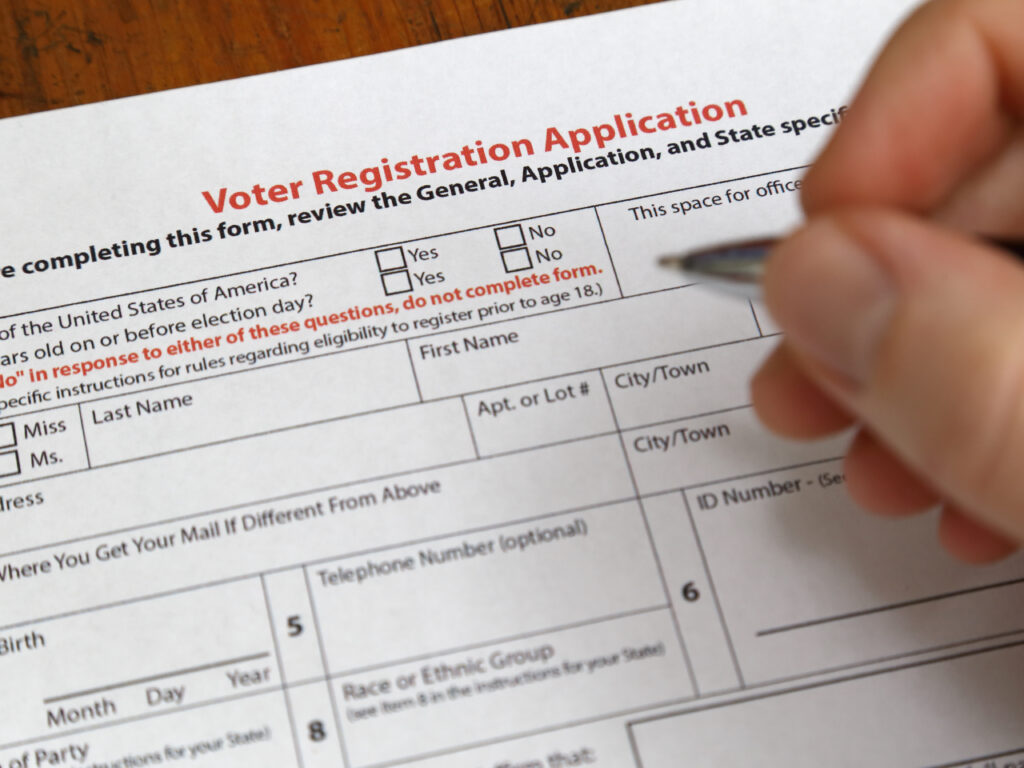Arkansas Election Board Decides to Ban Electronic Signatures for Voter Registration

The Arkansas State Board of Election Commissioners approved a permanent rule on Monday that would prohibit electronic signatures on voter registration forms, except for ones issued at certain state agencies.
This regulation is currently in place as an emergency rule that went into effect on May 4 and will expire on Sept. 1. The election board seeks to implement this provision as a permanent rule that would be implemented in September.
Under the rule, individuals filling out a registration application form have to sign it with a pen or writing device, providing a “wet signature.”
The only exceptions to these rules include specific state agencies permitted to register voters electronically, including agencies that provide state-funded public assistance or services for people with disabilities and The Office of Driver Services.
Supporters of the rule argue that wet signatures “provide greater security in the election process and help to prevent fraudulent voting practices.”
A major criticism of this rule is that it makes it harder for many individuals to vote — especially those who don’t have access to a printer or postal services, including people with disabilities, young people, senior citizens and residents living in rural areas. This is shown in Arkansas’ extremely low voter turnout.
Also, critics mentioned that 42 other states allow for online voter registration, so Arkansas is an outlier.
On June 5, Get Loud Arkansas (GLA) — a nonprofit organization dedicated to providing easily accessible means for all Arkansans to register to vote — filed a lawsuit challenging the emergency rule only allowing wet signatures.
GLA stated in its complaint it created an online tool on its website in January that allowed Arkansas residents to complete a voter registration application online. The prospective voters signed the forms electronically and authorized GLA to print and submit their applications to county clerks.
This led to a significant increase in voter registration throughout the state, especially for minorities and young people.
Throughout February, GLA reached out to Secretary of State John Thurston (R) to confirm that its tool complied with Arkansas law, and his office confirmed several times that electronic signatures were valid. Other election officials confirmed this as well.
Then, on Feb. 28, Thurston wrote a letter to county election officials, completely changing his stance.
In its lawsuit, GLA claimed that “once media outlets began reporting on GLA’s success in registering hundreds of young and minority voters, the Secretary abruptly reversed himself and recommended for the first time that counties reject electronic signatures on voter registration applications.”
Following his advice, the State Board of Election Commissioners approved an emergency rule in April requiring Arkansans to submit their voter registration forms with a handwritten signature, which the legislature then enacted in May.
GLA and the other plaintiffs in the lawsuit argue the wet signature requirement violates the Materiality Provision of the Civil Rights Act of 1964, which protects voters from being denied the right to vote over insignificant details or mistakes. They have asked the court to strike down the rule and block Arkansas election officials from enforcing it.
Other states’ wet signature requirements have been challenged in court too, including Florida, Georgia and Texas.
On July 11, GLA asked the federal district court to immediately stop state officials from enforcing the rule and rejecting voter registration forms with electronic signatures. Litigation is ongoing in the court.
Meanwhile, the Arkansas Legislative Council’s rules committee will decide whether to approve and implement the permanent rule in a hearing on Aug. 22.
Learn more about the case challenging the emergency rule here.